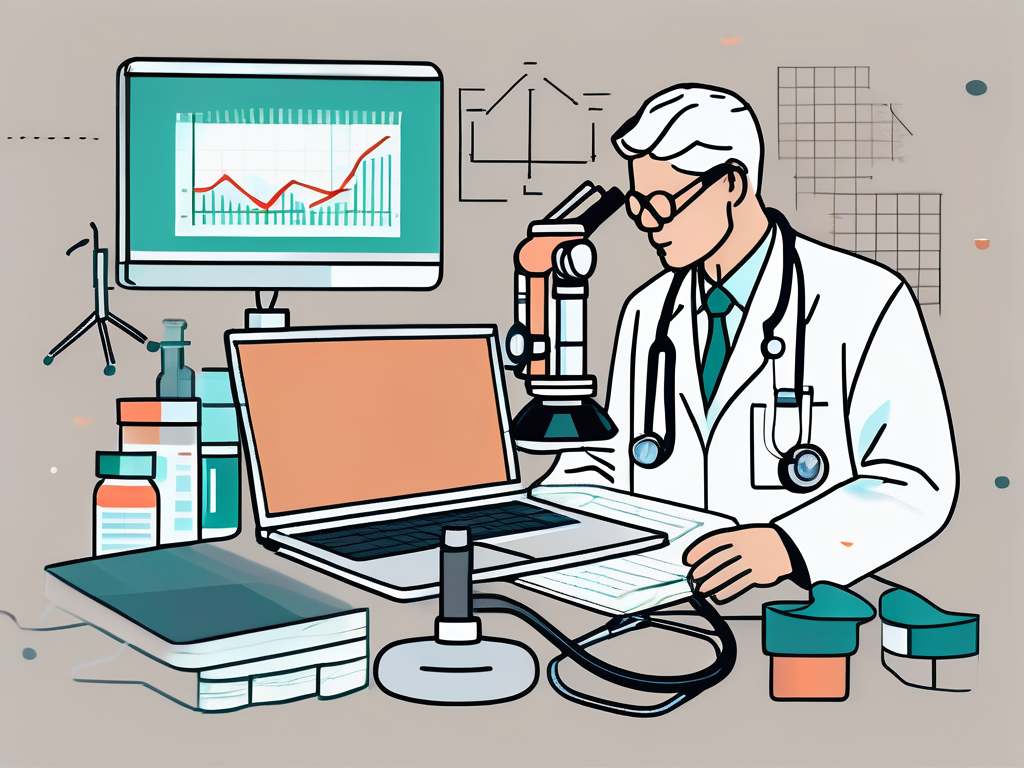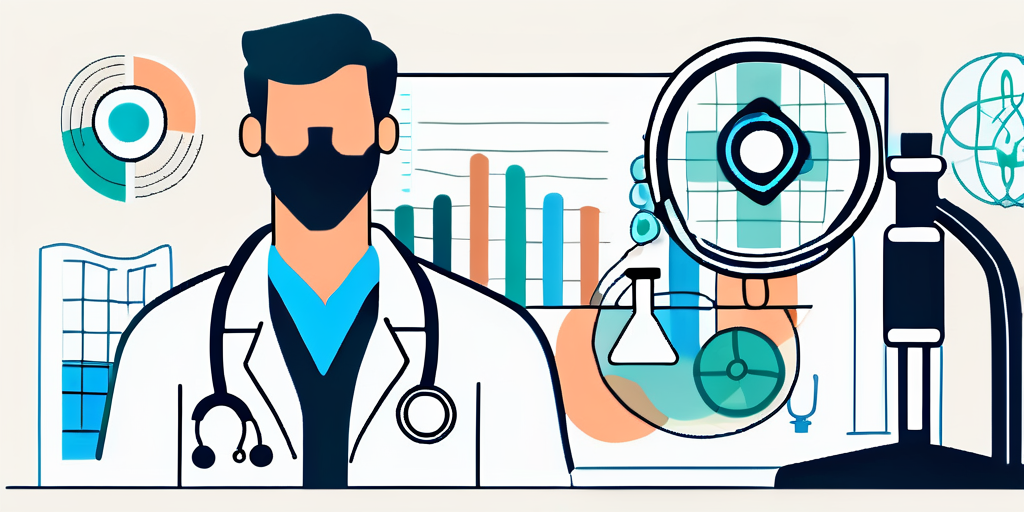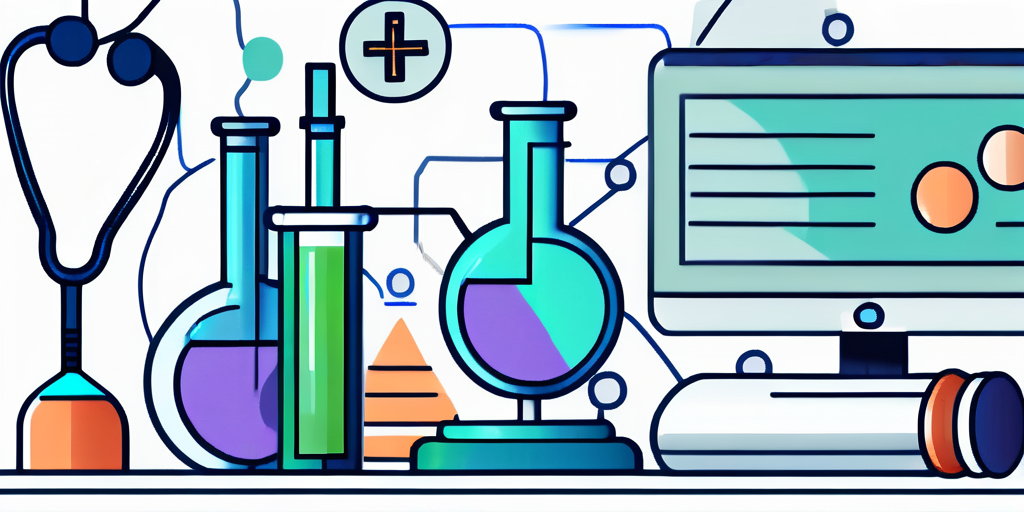Quick CV Dropoff
Send us your CV

Are you considering a career in clinical development? As the field continues to grow, there are plenty of opportunities for individuals with a passion for healthcare and a desire to make a difference. In this ultimate guide, we'll explore everything you need to know about clinical development jobs, from understanding the roles and skills required to navigating the job market and landing your dream job. So, let's dive in and begin our journey into the world of clinical development!
Before we delve into the details, let's start by understanding what clinical development actually entails. Clinical development refers to the process of bringing new drugs, treatments, and medical devices from the laboratory to the patients. It involves conducting clinical trials, collecting data, and ensuring that all necessary regulations and guidelines are followed. This crucial phase in the healthcare industry plays a vital role in improving patient outcomes and advancing medical science.
Within the field of clinical development, there are several key roles that contribute to the successful execution of clinical trials and the development of new medical treatments. These roles include:
Pursuing a career in clinical development requires various skills and qualities. Apart from possessing a strong scientific background, individuals in this field should have:
A Clinical Research Associate (CRA) plays a crucial role in the clinical development process. They are responsible for monitoring clinical trials, ensuring that protocols are followed, and collecting accurate data. CRAs work closely with investigators and study coordinators in various healthcare settings, including hospitals, research institutions, and pharmaceutical companies. If you enjoy traveling, as CRAs often do, and have a keen eye for detail, this might be the perfect career path for you!
As a Clinical Project Manager (CPM), you'll be at the forefront of clinical development projects. CPMs oversee the planning, execution, and closeout of clinical trials. They manage teams, budgets, timelines, and ensure that all stakeholders are working together efficiently. This role requires excellent leadership and communication skills, as you'll be navigating complex projects while keeping everyone on the same page. If you thrive in a dynamic and challenging environment, becoming a CPM might be your calling!
In the era of big data, Clinical Data Managers (CDMs) play a crucial role in ensuring the quality and integrity of clinical trial data. CDMs are responsible for designing databases, data validation, and analysis. They work closely with CRAs and biostatisticians to ensure that data management processes are aligned with the study objectives. If you have a knack for data analysis and enjoy working with statistical software, a career as a CDM might be your ideal fit!
Bringing new medical treatments and therapies to patients requires meticulous planning and coordination. This is where Clinical Trials Managers (CTMs) shine. CTMs play a vital role in overseeing the entire clinical trial process, from protocol development to study closeout. They ensure that trials are conducted safely, ethically, and within regulatory guidelines. CTMs work closely with research teams, sponsors, and regulatory authorities to navigate the complex landscape of clinical trials. If you have a passion for project management and a drive to make a real impact on patient's lives, consider a career as a CTM!
To pursue a career in clinical development, a strong educational foundation is essential. Most positions require at least a bachelor's degree in a relevant field such as life sciences, pharmacy, or nursing. However, certain roles, such as Clinical Project Managers, may require a master's degree or higher. It's important to research specific job requirements and consider pursuing additional education if necessary to increase your chances of success in this competitive field.

While education provides the necessary knowledge, gaining practical experience in clinical development is equally important. Seek out internships, research assistant positions, or entry-level roles in clinical research to gain hands-on experience and showcase your commitment to the field. Additionally, volunteer opportunities and involvement in professional organizations can enhance your knowledge and network within the industry.
To stand out in the clinical development job market, earning professional certifications and licenses can significantly boost your credentials. Organizations such as the Society of Clinical Research Associates (SOCRA) and the Association of Clinical Research Professionals (ACRP) offer certifications that demonstrate your knowledge and commitment to ethical and high-quality clinical research. Additionally, some positions may require specific licenses, such as the Certified Clinical Research Coordinator (CCRC) or the Certified Clinical Research Professional (CCRP) designation.
In a competitive job market, it's crucial to differentiate yourself from other candidates. Tailor your resume and cover letter to highlight your specific skills and experiences relevant to clinical development. Showcase any relevant research projects, publications, or presentations you have contributed to. Be prepared to discuss your knowledge of regulations and guidelines during interviews, and demonstrate your ability to work effectively within a team. Additionally, staying up-to-date with industry news and advancements will demonstrate your passion and commitment to your potential employer.

Interviews can be nerve-wracking, but with the right preparation, you can increase your chances of success. Research the company you're interviewing with, familiarize yourself with their current projects and values. Prepare thoughtful questions to ask the interviewer to demonstrate your interest and engagement. Additionally, be prepared to discuss your past experiences and how they relate to the role you're applying for. Finally, remember to showcase your enthusiasm, passion, and commitment to improving patient outcomes through clinical research!
Clinical development jobs offer unique opportunities for individuals with a passion for healthcare and a desire to contribute to medical advancements. Understanding the roles and skills required, exploring different career paths, and navigating the job market can help you pave the way towards a rewarding and fulfilling career in clinical development. Ready to embark on this journey? We can help! Contact us to explore opportunities and embark on a journey that promises both personal growth and meaningful impact in the world of healthcare!